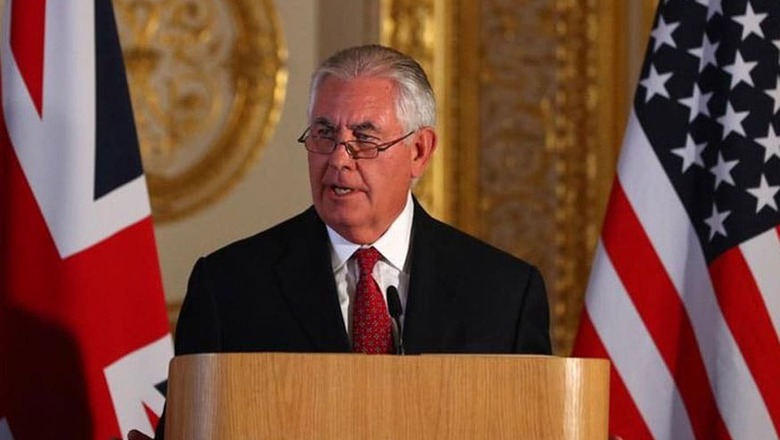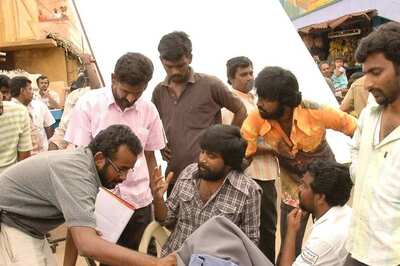
views
Naypyitaw: US Secretary of State Rex Tillerson arrived in Myanmar on Wednesday for talks with the army chief whose forces have been accused of atrocities against ethnic Muslim Rohingya during an operation that drove more than 600,000 to flee to Bangladesh.
A senior UN official levelled the accusations of mass rape, killings and torture against the Myanmar military, known as the Tatmadaw, after a tour of refugee camps in the Cox's Bazar region of neighbouring Bangladesh.
Human rights groups have branded as a "whitewash" the military's internal investigation into those allegations, after its findings were posted this week on the Facebook page of the army chief, Senior General Min Aung Hlaing.
Arriving in the Myanmar capital Naypyitaw, Tillerson went straight to see Min Aung Hlaing before a separate meeting with Aung San Suu Kyi, the de facto leader of a civilian administration that is less than two years old, has to share power with the military and has no control over the generals.
Tillerson and Suu Kyi were scheduled to hold a joint news conference later in the day.
Tillerson and Suu Kyi met on Tuesday during an Asian summit in the Philippines, where the Nobel peace prize winner sought to explain her government's efforts to resolve the crisis and its plans for the eventual voluntary repatriation of Rohingya.
A senior US State Department official travelling with Tillerson told journalists on Tuesday the secretary would tell the army chief that peace and stability needed to be restored to northern Rakhine so that Rohingya refugees could return home.
"We are focusing on trying to stabilize areas in northern Rakhine so that people can return there, stopping the violence, making sure that the military would protect all populations in that area equally and that they conduct a credible investigation that leads to accountability for people who have perpetrated abuses," said the official, who was with Tillerson in Manila and declined to be identified.
US senators in Washington are pressing for economic sanctions and travel restrictions targeting the Myanmar military and its business interests.
Myanmar's security forces and armed civilians carried out an "unprecedented, widespread and systematic attack on Rohingya citizens throughout northern Rakhine state with brutal efficiency", rights group Fortify Rights and the Simon-Skjodt Center for Prevention of Genocide said in a report.
The report, released on Wednesday, said thousands of Rohingya continued to cross into Bangladesh, "contributing to the fastest growing outflow of refugees from a country since the Rwandan genocide".
The Myanmar military says it launched a counter-insurgency clearance operation after Rohingya militants attacked an army base and 30 police posts on Aug. 25, killing around a dozen security forces.
The report said it had found no instances in which its soldiers had shot and killed Rohingya villagers, raped women or tortured prisoners. It denied that security forces had torched Rohingya villages or used "excessive force".
Suu Kyi's failure to speak out strongly over the Rohingya's plight has damaged her international reputation as a stateswoman.
Many diplomats, however, believe Myanmar's fragile transition to democracy after 49 years of military rule would be jeopardised if she publicly criticised the armed forces.
The US official said Tillerson would reiterate support for Myanmar's transition to democracy and spoke positively of Suu Kyi's intentions, based on her talks with world leaders in Manila.
The government in mostly Buddhist Myanmar regards the Rohingya as illegal immigrants from Bangladesh. But Suu Kyi has said refugees who can prove they were Myanmar residents will be allowed to return.



















Comments
0 comment